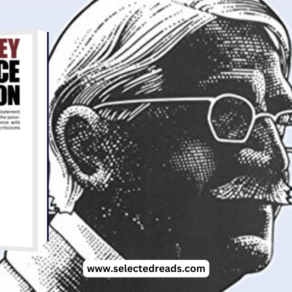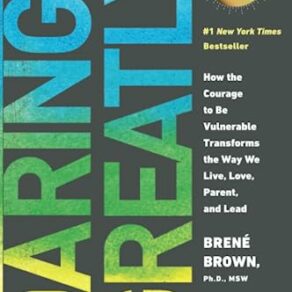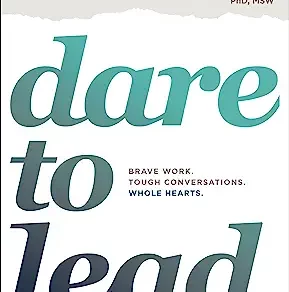John dewey quotes are the topic of our blog post today!
John Dewey, an eminent philosopher, psychologist, and educational reformer, offered a wealth of insights that remain profoundly relevant in today’s educational landscape. His perspectives on learning, failure, and the essence of education challenge us to rethink the traditional paradigms of teaching and classroom dynamics.
Dewey’s quotes encapsulate a revolutionary idea: education is more than the mere acquisition of knowledge—it’s an active, lifelong process that is deeply intertwined with experience and reflective practice.
In this collection of his thoughts, we explore the depth of Dewey’s wisdom on how education shapes us, and in turn, how we shape our educational experiences. These quotes invite educators, students, and lifelong learners to reflect on the true purpose of education, the importance of adaptability, and the empowerment that comes from a mind that is free to observe, judge, and learn.
As we delve into Dewey’s profound statements, let’s ponder the implications of his philosophy on our approach to learning and teaching, and how it can inspire us to foster environments where curiosity and critical thinking are not just encouraged but celebrated.
For summaries of John Dewey’s books, read: Experience and Education summary and Democracy and Education Summary
John Dewey Quotes
Here are some of the most popular John Dewey quotes:
“We do not learn from experience… we learn from reflecting on experience.” ― John Dewey

“Failure is instructive. The person who really thinks learns quite as much from his failures as from his successes.” ― John Dewey
“Education is not preparation for life; education is life itself.” ― John Dewey

“The aim of education is to enable individuals to continue their education.” ― John Dewey

“The only freedom that is of enduring importance is the freedom of intelligence, that is to say, freedom of observation and of judgment, exercised in behalf of purposes that are intrinsically worth while. The commonest mistake made about freedom is, I think, to identify it with freedom of movement, or, with the external or physical side of activity.” ― John Dewey
“Learning is not the product of teaching. Learning is the product of the activity of learners.”― John Dewey

“The most important attitude that can be formed is that of desire to go on learning.”― John Dewey
“The self is not something ready-made, but something in continuous formation through choice of action.”― John Dewey
“Give the pupils something to do, not something to learn; and the doing is of such a nature as to demand thinking; learning naturally results.”― John Dewey

“The lesson for progressive education is that it requires in an urgent degree, a degree more pressing than was incumbent upon former innovators, a philosophy of education based upon a philosophy of experience. I remarked incidentally that the philosophy in question is, to paraphrase the saying of Lincoln about democracy, one of education of, by and for experience. No one of these words, of, by, or for, names anything which is self-evident. Each of them is a challenge to discover and put into operation a principle of order and organization which follows from understanding what educative experience signifies.” ― John Dewey
“If we teach today’s students as we taught yesterday’s, we rob them of tomorrow.”― John Dewey

“We always live at the time we live and not at some other time, and only by extracting at each present time the full meaning of each present experience are we prepared for doing the same thing in the future.” ― John Dewey
“We only think when confronted with a problem.” ― John Dewey

“I believe that the only true education comes through the stimulation of the child’s powers by the demands of the social situations in which he finds himself.”― John Dewey
“Were all instructors to realize that the quality of mental process, not the production of correct answers, is the measure of educative growth something hardly less than a revolution in teaching would be worked.” ― John Dewey
“Collateral learning in the way of formation of enduring attitudes, of likes and dislikes, may be and often is much more important than the spelling lesson or lesson in geography or history that is learned. For these attitudes are fundamentally what count in the future.” ― John Dewey
“Society not only continues to exist by transmission, by communication, but it may fairly be said to exist in transmission, in communication.” ― John Dewey
“There is, I think, no point in the philosophy of progressive education which is sounder than its emphasis upon the importance of the participation of the learner in the formation of the purposes which direct his activities in the learning process, just as there is no defect in traditional education greater than its failure to secure the active cooperation of the pupil in construction of the purposes involved in his studying.” ― John Dewey
“Every great advance in science has issued from a new audacity of imagination.” ― John Dewey

“The path of least resistance and least trouble is a mental rut already made. It requires troublesome work to undertake the alteration of old beliefs. ”― John Dewey
“A problem well put is half solved.” ― John Dewey

“The only way to abolish war is to make peace seem heroic.” ― John Dewey
“Anyone who has begun to think, places some portion of the world in jeopardy.” ― John Dewey
“Interest in the subject at hand is the best stimulus for learning.”― John Dewey

“The ultimate function of literature is to appreciate the world, sometimes indignantly, sometimes sorrowfully, but best of all to praise when it is luckily possible.” ― John Dewey
“There’s all the difference in the world between having something to say, and having to say something.” ― John Dewey
“Arriving at one goal is the starting point to another.” ― John Dewey

“On the other hand, if an experience arouses curiosity, strengthens initiative, and sets up desires and purposes that are sufficiently intense to carry a person over dead places in the future, continuity works in a very different way. Every experience is a moving force.”― John Dewey
“Like the soil, mind is fertilized while it lies fallow, until a new burst of bloom ensues.” ― John Dewey

“I feel the gods are pretty dead, though I suppose I ought to know that however, to be somewhat more philosophical in the matter, if atheism means simply not being a theist, then of course I’m an atheist. ― John Dewey
Final thoughts
In delving into the profound wisdom of John Dewey’s words, we come face-to-face with the transformative power of education as he envisioned it—a journey that extends beyond the confines of traditional learning into the realm of reflective thought, personal growth, and societal contribution. Dewey’s insights encourage us to embrace a model of education that values critical thinking, adaptability, and the continuous evolution of the self through experiences.
His philosophy serves as a reminder that education should not be seen as a mere preparation for life but as life itself, a continuous and dynamic interplay between learning and doing. By reflecting on these quotes, educators and learners alike are beckoned to foster a learning environment that prizes inquiry, embraces the lessons of failure, and recognizes the importance of intellectual freedom. Dewey’s legacy inspires us to perpetuate a cycle of learning that is not only self-renewing but also deeply connected to the realities and challenges of the living world.
Sources:






